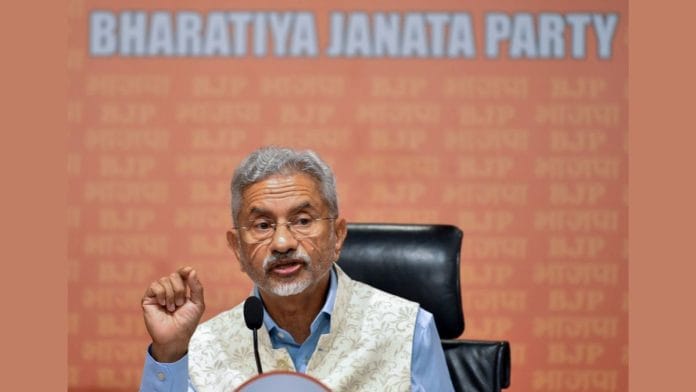Thank you dear subscribers, we are overwhelmed with your response.
Your Turn is a unique section from ThePrint featuring points of view from its subscribers. If you are a subscriber, have a point of view, please send it to us. If not, do subscribe here: https://theprint.in/subscribe/
In recent times, the Government of India has become very vocal against any meddling in domestic affairs by foreign governments. Terming the statements made by US and Germany on Arvind Kejriwal’s arrest as ‘unwanted’ and ‘interference in domestic affairs’, India has reacted sharply to every critical comment arising out of any quarter that undermines the country’s democratic functioning. However a closer analysis of the tone of replies given by the government highlights the country’s strategic calculations while carrying out diplomatic dialogues.
Take the US in case. The government outrightly rejected every critical comment passed on by it. Washington had expressed its worries on almost every major issue: from Manipur to CAA, and Kejriwal to Congress. But the government remained firm on its stand. Every time the US made a punch, India asked it ‘not to interfere’ and reminded the super power that India has a network of robust institutions that work in a proper democratic setup, and they are capable enough to deal with any issue on their own.
Here the tone of India’s reply remains tough, but limited to the mere rejection of comments. That appears to be primarily because of India’s desire to closely cooperate with the US on multiple fronts including space, security, semiconductor, trade and China- among others, but without compromising with the sovereign autonomy.
But that is not the case when it comes to another North American country, Canada. It issued statements on farmers’ protest and also accused India of being involved in Hardeep Singh Nijjar’s death. India on its part, not only rejected the allegations but also accused Ottawa of not doing enough to tackle Khalistani terrorism and rather accommodating it in its political space. Taking a step ahead it also asked the North American country to bring down its number of diplomats serving in India in parity with the number of Indian diplomats serving with Canada. India didn’t care even if it meant certain hardships to its own diaspora.
The reason behind this is the negligible strategic influence Canada holds in the global sphere. It is neither a big trade partner of India nor shares any cultural affiliation with New Delhi. And thus the alumni of Sushma Swaraj Institute of Foreign Service don’t find it useful enough to spend their diplomatic energy upon such a country.
When it comes to Europe, India maintains a tit-for-tat approach. That can be understood from the bilateral exchange that both shared after India’s decision to continue oil trade with Russia. Europe accused India of sponsoring Russia’s war on Ukraine. India on the other hand, reminded Europe that how it (Europe) itself continued trading with Russia until it found an alternative, and also of being a beneficiary of India’s trade with Russia.
This approach of India is primarily based on two factors. First is the post 1991 liberal outlook that India wears today, that makes Europe a natural ally. Second factor lies in Europe’s desire to come out of America’s sphere of influence. It is looking for new strategic partners all across the globe, and India doesn’t want to lose out on this opportunity merely for the sake of some diplomatic statements.
These pieces are being published as they have been received – they have not been edited/fact-checked by ThePrint


